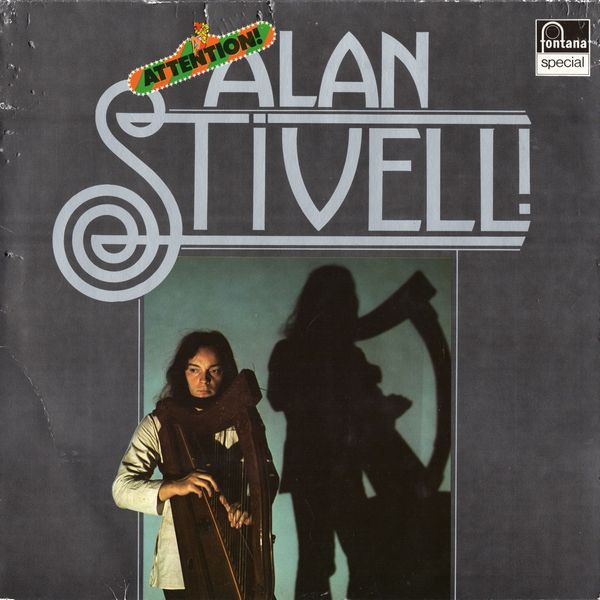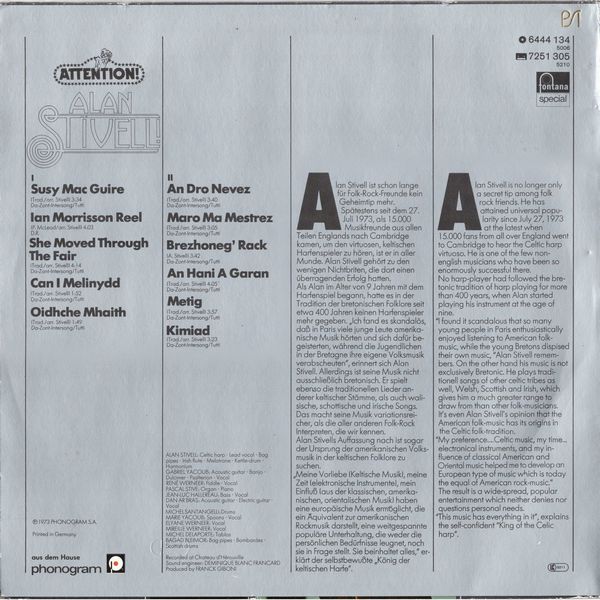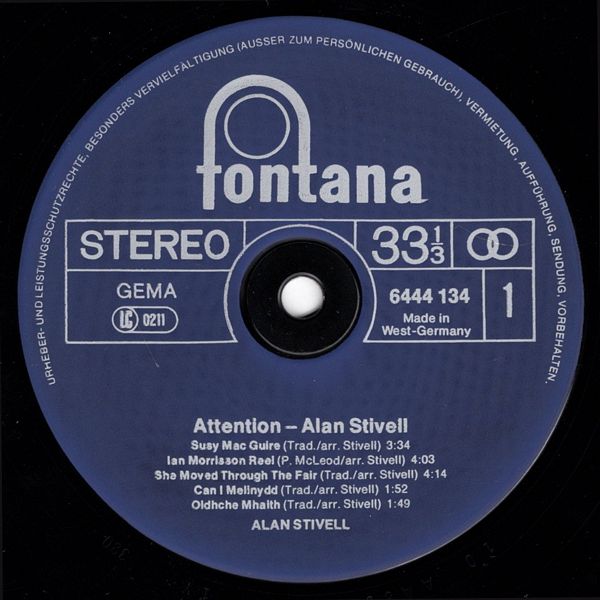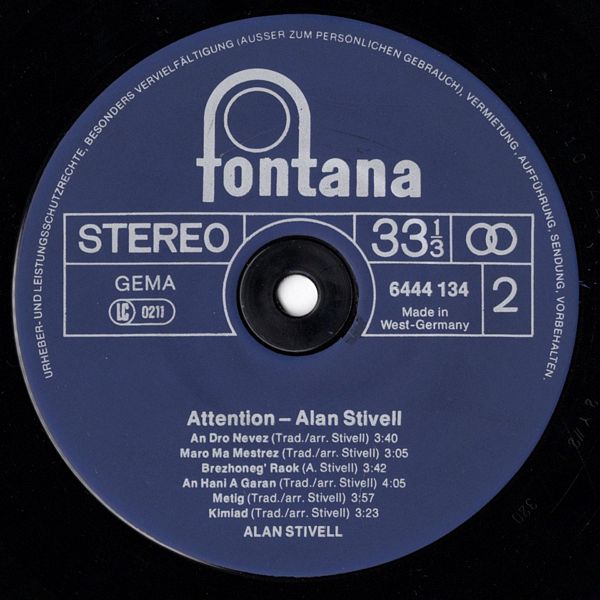
 |



|
Sleeve Notes
Alan Stivell is no longer only a secret tip among folk rock friends. He has attained universal popularity since July 27, 1973 at the latest when 15,000 fans from all over England went to Cambridge to hear the Celtic harp virtuoso. He is one of the few non-english musicians who have been so enormously successful there.
No harp-player had followed the bretonic tradition of harp playing for more than 400 years, when Alan started playing his instrument at the age of nine.
"I found it scandalous that so many young people in Paris enthusiastically enjoyed listening to American folk-music, while the young Bretons dispised their own music, "Alan Stivell remembers. On the other hand his music is not exclusively Bretonic. He plays traditionell songs of other Celtic tribes as well, Welsh, Scottish and Irish, which gives him a much greater range to draw from than other folk-musicians.
It's even Alan Stivell's opinion that the American folk-music has its origins in the Celtic folk-tradition.
"My preference … Celtic music, my time … electronical instruments, and my influence of classical American and Oriental music helped me to develop an European type of music which is today the equal of American rock-music."
The result is a wide-spread, popular entertainment which neither denies nor questions personal needs.
"This music has everything in it", explains the self-confident "King of the Celtic harp".